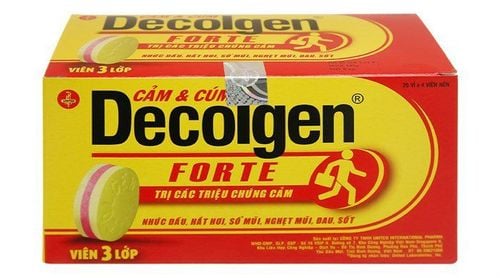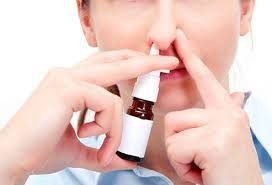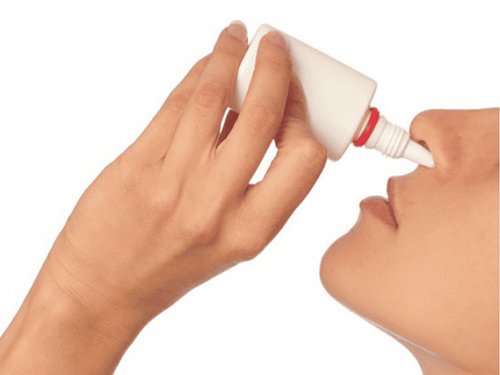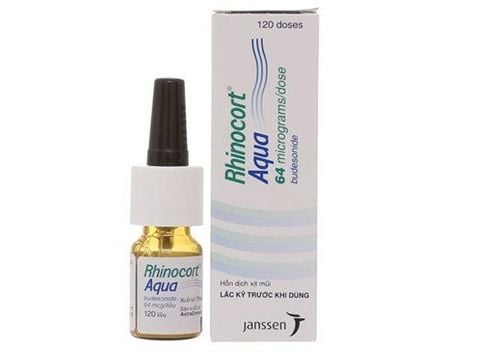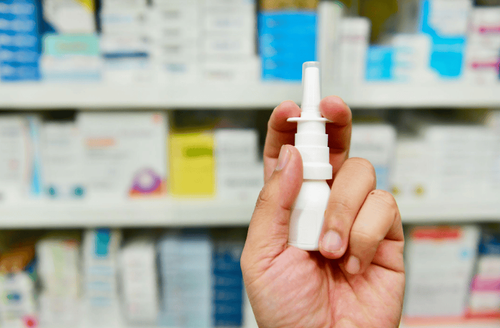This is an automatically translated article.
Vasomotor rhinitis occurs in the respiratory tract due to the impact of external factors such as weather, fungal infections, bacteria... creating a reaction between the sympathetic nervous system in the nasal mucosa and the nervous system. nose irritation. Although the disease is not dangerous, it makes patients feel uncomfortable, affecting their health and quality of life.
1. Signs of vasomotor rhinitis
Symptoms of vasomotor rhinitis can last for several weeks or longer if left untreated. They can appear and disappear on their own. Here are some common signs of vasomotor rhinitis:
Constant sneezing Cough Frequent runny nose, especially in the morning and evening Nasal congestion Red nose. These symptoms are very similar to those of sinusitis or allergic rhinitis. Therefore, patients need to visit a medical facility for an accurate examination and diagnosis.
2. Causes of vasomotor rhinitis

Ô nhiễm môi trường, không khí có thể là nguyên nhân gây viêm mũi vận mạch
Vasomotor rhinitis is inflammation of the nose caused by an overreaction of the parasympathetic nervous system in the nasal mucosa. Some factors cause vasomotor rhinitis such as:
Due to environmental changes, temperature changes, humidity, especially dry weather, it is easy to irritate the nasal mucosa, making bacteria easy to attack. and cause disease Environmental pollution, air Perfume, secondhand smoke or inhalation of secondhand smoke Colds and flus Due to the effects of some drug groups such as high blood pressure drugs, non-steroidal anti-inflammatory drugs, psychoactive drugs, pain relievers..... Hormonal disorders: pregnant women, hormonal changes make the risk of vasomotor rhinitis higher than usual or other hormone conditions such as hypothyroidism Eat foods Hot and spicy Working in an air-conditioned environment often, in addition to the pressure and stress of work, is also a factor that causes patients to have vasomotor rhinitis. Vasomotor rhinitis occurs when the blood vessels in the nose widen, causing congestion and congestion. Possible discharge of mucus from the nose.
3. Treatment of vasomotor rhinitis
To treat vasomotor rhinitis, your doctor will prescribe some of the following medicines:
Antihistamines Anti-inflammatory nasal sprays for allergic rhinitis contain corticosteroids such as fluticasone Antihistamine sprays such as azelastine Anticholinergic nasal sprays such as ipratropium The vasoconstrictor pseudoephedrine In the case of a runny nose, additional specific anti-rheumatic drugs can be used. In addition, patients need to eliminate the trigger factors, create a comfortable and happy psychology, regularly practice sports to improve their own physical condition. Pay attention to prevent recurrent vasomotor rhinitis: if it's cold, remember to keep your body warm, wear a mask when going out, don't go near polluted places....add enough nutrients to increase body resistance.
When the above treatments do not improve vasomotor rhinitis, the doctor will appoint surgery to remove nasal polyps; restore the deviated septum to improve the effectiveness of vasoactive anti-inflammatory drugs or burn the lower nasal peduncle, cut the lower nasal pedicle or middle peduncle, etc. This method will expose the patient to some complications such as bleeding at the surgical site, atrophic rhinitis.... the recovery time also takes a long time.
Using plasma method: using automatic low temperature to accurately trace inflammatory areas and dissolve inflammatory foci in the nasal cavity. This is a safe measure, but if there is no effective way to prevent it, the patient can still have it again and again.
Currently, the most common method is laparoscopic surgery. This method is quite effective in the treatment of vasomotor rhinitis. Despite good results, patients still face risks such as prolonged eye pain after surgery, decreased tear production causing dry eyes or facial paresthesia.
For patients with severe rhinorrhea that do not respond to medications, surgery can be performed to cut the vidien nerve.
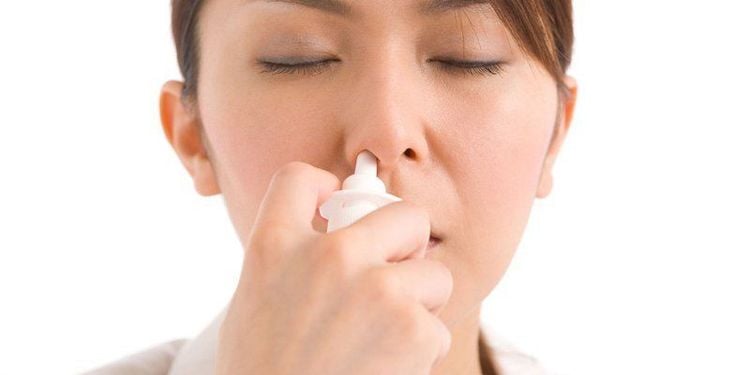
Bệnh nhân có thể được sử dụng một số dạng thuốc xịt dưới sự chỉ định của bác sĩ
4. Prevention of vasomotor rhinitis
To prevent vasomotor rhinitis, you need to pay attention:
When the weather changes season, you must keep warm for the body, especially the nose and neck. When it gets cold, you should take a quick shower with warm water, take a shower in a well-ventilated room, wipe your body dry before wearing clothes Limit exposure to dusty, polluted environments, wear a mask when going out to avoid bacteria , viruses enter the body to cause disease Use western medicines such as high blood pressure drugs or psychoactive drugs...if the nasal mucosa is irritated, it is necessary to notify the treating doctor immediately Avoid stress, work pressure work, keep the spirit comfortable Living space needs to be cleaned to reduce the existence of bacteria and viruses in the living space Build a scientific and reasonable diet and activities. Avoid eating spicy foods, beer, alcohol, cigarettes.. Work hard to increase resistance. Although vasomotor rhinitis is not a dangerous disease, it causes many difficulties for patients to live and work. When you see any symptoms of the disease, you should immediately go to a medical facility for timely examination, diagnosis and treatment
Otolaryngology - Vinmec International General Hospital specializes in examining and treating common ENT diseases such as: rhinitis, allergic rhinitis, vasomotor rhinitis, tonsillitis, sore throat, tinnitus, non-allergic rhinitis, throat cancer; tumors of the head, face and neck, congenital malformations of the ear, nose and throat area by common surgical methods.
Please dial HOTLINE for more information or register for an appointment HERE. Download MyVinmec app to make appointments faster and to manage your bookings easily.





